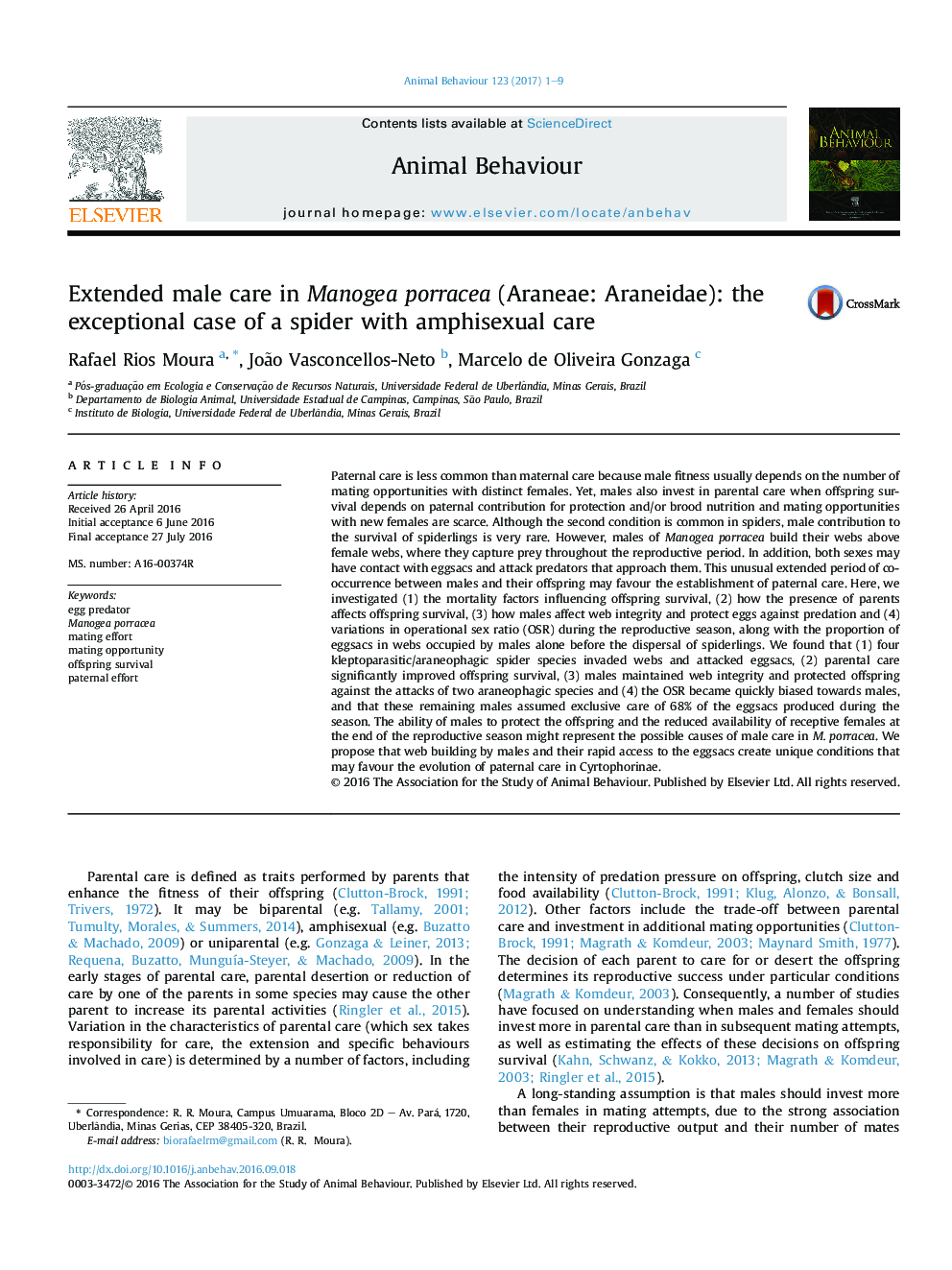| Article ID | Journal | Published Year | Pages | File Type |
|---|---|---|---|---|
| 5538565 | Animal Behaviour | 2017 | 9 Pages |
Abstract
Paternal care is less common than maternal care because male fitness usually depends on the number of mating opportunities with distinct females. Yet, males also invest in parental care when offspring survival depends on paternal contribution for protection and/or brood nutrition and mating opportunities with new females are scarce. Although the second condition is common in spiders, male contribution to the survival of spiderlings is very rare. However, males of Manogea porracea build their webs above female webs, where they capture prey throughout the reproductive period. In addition, both sexes may have contact with eggsacs and attack predators that approach them. This unusual extended period of co-occurrence between males and their offspring may favour the establishment of paternal care. Here, we investigated (1) the mortality factors influencing offspring survival, (2) how the presence of parents affects offspring survival, (3) how males affect web integrity and protect eggs against predation and (4) variations in operational sex ratio (OSR) during the reproductive season, along with the proportion of eggsacs in webs occupied by males alone before the dispersal of spiderlings. We found that (1) four kleptoparasitic/araneophagic spider species invaded webs and attacked eggsacs, (2) parental care significantly improved offspring survival, (3) males maintained web integrity and protected offspring against the attacks of two araneophagic species and (4) the OSR became quickly biased towards males, and that these remaining males assumed exclusive care of 68% of the eggsacs produced during the season. The ability of males to protect the offspring and the reduced availability of receptive females at the end of the reproductive season might represent the possible causes of male care in M. porracea. We propose that web building by males and their rapid access to the eggsacs create unique conditions that may favour the evolution of paternal care in Cyrtophorinae.
Related Topics
Life Sciences
Agricultural and Biological Sciences
Animal Science and Zoology
Authors
Rafael Rios Moura, João Vasconcellos-Neto, Marcelo de Oliveira Gonzaga,
